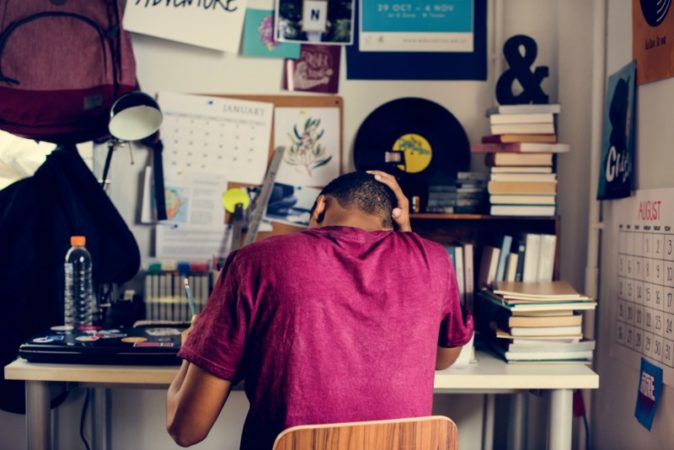Of all the cranky behaviors, awkward situations, ridiculous arguments, and other adolescent concerns I was told to expect from my teenagers, having them glumly retreat to their rooms alone for extended periods of time was the most bothersome for me.
Like many other teen “issues” that parents immediately take personally, I too thought that there must either be something wrong with me, or something deeply wrong with my teenager, that would make them suddenly want to avoid everyone in the household (and the outside world).
What I didn’t know was that seeking solitude and privacy is a perfectly normal craving for teenagers, and while you may see their new desire for detachment as concerning, what is really happening is actually mentally necessary.

A study recently published in the Journal of Adolescence looked at a variety of emotional and peer driven factors that can be cause for a teen’s sudden desire and need for solitude, and what they found should have parents less concerned about the often annoying, yet highly beneficial behavior.
Researchers believe wanting and needing to be alone is all a matter of personal choice for teens, and whether that choice is one of imposition or free will is the determining factor into whether the solitude seeking behavior is healthy, or alarming.
Solitude has gotten a lot of bad press, especially for adolescents who get labeled as social misfits or lonely,” said Margarita Azmitia, professor of psychology at UC Santa Cruz and co-author of the study paper. She continues, ”Sometimes, solitude is good. Developmentally, learning to be alone is a skill, and it can be refreshing and restorative.
For example, when a teenager is grounded and punishment includes forced time alone in their bedroom, researchers found that kind of solitude to be problematic. But when a teen has chosen on their own to “check out” of life so to speak, it serves as a therapeutic and much-needed break from the noise of life. The study states in those cases self-imposed solitude “can provide an opportunity for self-reflection, creative expression, or spiritual renewal.”
Researchers were able to question teens about the kinds of feelings and depth of emotions they experienced during forced vs. self-imposed alone time, and they found that one is much more beneficial than the other. For those teens who are wanting be alone because of feelings of social anxiety– which includes rejection from friends and peer groups, they may be at a higher risk for depression, social anxiety, and loneliness, and “they tend to have lower levels of identity development, autonomy, and positive relationships with others.”
But for teens who self-impose periodic personal isolation, they’re more likely to use it as a time to recharge their mental batteries, using that time for peace, quiet, and calm from the chaos of their daily lives.
Virginia Thomas PhD., assistant professor of psychology at Wilmington College who helped spearhead the study, states that adolescence is when the capacity for solitude “blossoms,” and for teenagers who are connected to the outside world 24/7 via smartphone devices and social media, it’s especially important for them to learn and embrace how to tune out. She states,
These results increase our awareness that being alone can be restorative and a positive thing. The question is how to be alone without feeling like we’re missing out. For many people, solitude is like exercising a muscle they’ve never used. You have to develop it, flex it, and learn to use time alone to your benefit.
Thomas warns parents to not always think the worst when our teens withdraw and crave alone time, but rather we should appreciate the benefits the downtime can provide them. Azmita agrees, stating
Solitude can improve the wellbeing of kids who are overstimulated. They can learn to regulate their behavior, on their own, without being told to. We need to build our cultural understanding that we don’t have to be social all the time. Sometimes alone time is good time.
For a generation that is constantly wired both physically and mentally to activity and stimulation, not only is some solitude a very good thing for our teens, it’s probably beneficial to their stressed to parents as well. Is there room in your teen’s room for YOU to check out of life for a little while? It probably wouldn’t hurt to ask them!
You Might Also Like to Read:
Why I Still Make My Teen’s Lunches? Because I Pack Them With Love
Your Teens Need to Know That Failure Really Equals Success and Here’s Why









